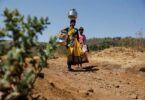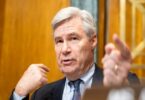BRUSSELS (Reuters): Developed nations may have achieved their overdue promise of $100 billion to help poorer countries cope with climate change in 2022, the OECD said on Thursday, an estimate that may muster some political goodwill on the eve of the COP28 climate summit.
In 2009, developed countries promised that from 2020 they would transfer $100 billion a year to poorer nations hit by worsening climate change-fuelled disasters. Rich countries had previously signalled the target would not be met until 2023.
The goal is politically symbolic and failure to meet it has stoked mistrust in past climate talks, hampering other deals to tackle climate change as poorer nations argue the world’s economic powers are leaving them in the lurch.
The data come two weeks ahead of the United Nations’ COP28 climate summit, which starts in Dubai on Nov. 30.
Finance is a sore point in UN climate talks, as developing economies say they cannot adapt to extreme weather or invest in cleaner energy without more support from the rich nations whose historical fossil fuel burning caused climate change.
“Based on preliminary and as yet unverified data, the goal looks likely to have already been met as of 2022,” said Mathias Cormann, Secretary-General of the Organisation for Economic Co-operation and Development (OECD).
The $100 billion is far below poor nations’ actual climate investment needs, which by 2025 could total $1 trillion per year, the OECD said.
“The delivery of the $100 billion is vitally important,” said Tina Stege, climate envoy for the Marshall Islands, a nation vulnerable to rising sea levels.
“From building sea walls to adapt to climate change, to installing renewables, to helping people rebuild their lives and livelihoods if they’re forced to move – all of these things cost money,” she said.
The OECD confirmed the target was not met in 2021. That year, wealthy nations provided $89.6 billion, an 8% increase from 2020 levels.
Most of the 2021 money – $73 billion – was public finance and, of this, more than two thirds was loans. The OECD warned, however, that this funding – from sources including multilateral development banks and national aid agencies – has so far failed to mobilise substantial private capital, which is needed to cover the climate investment gap.







